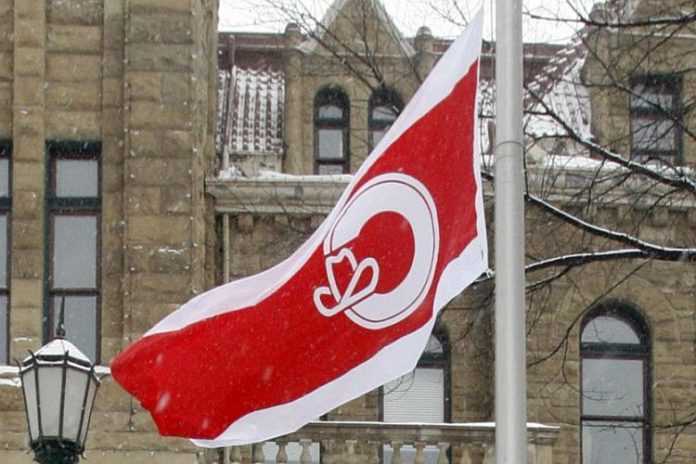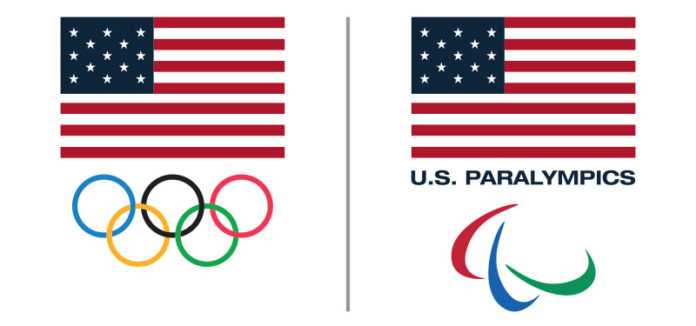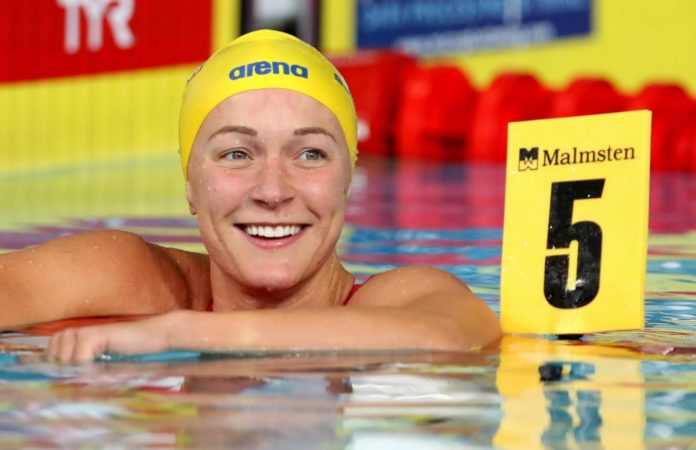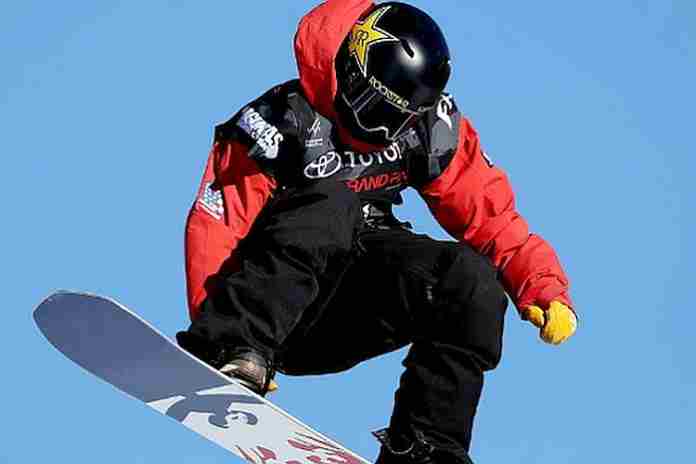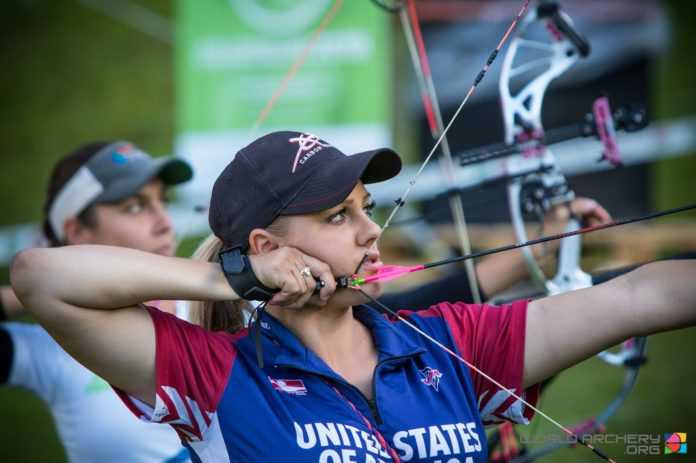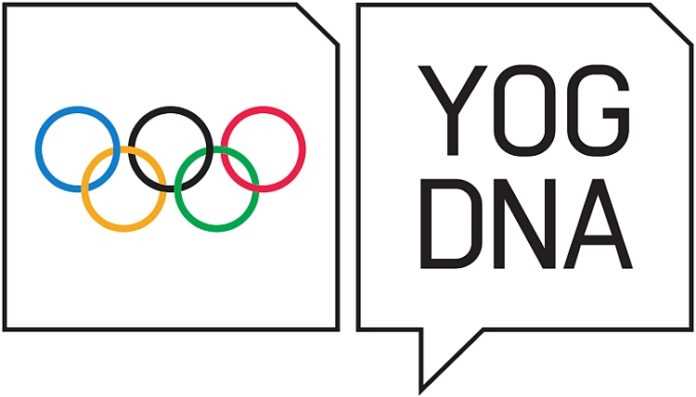The U.S. hadn’t done a whole lot at the ISSF World Championships in Changwon (KOR). That all changed on Tuesday, as Caitlin Connor, Kim Rhode and Amber English swept the medals in the women’s Skeet event and, of course, won the team gold as well.
The U.S. had high hopes coming into the event, having won the women’s Skeet gold in the previous Worlds, via Brandy Drodz in 2014, Morgan Craft in 2015, and Dania Jo Vizzi in 2017.
In the final, Connor hit her first 34 targets to claim the lead, with Rhode at 37/40 and English also at 37/40. That eliminated the 2001 Worlds silver medalist Danka Bartekova (SVK) from the competition and left the three Americans. English hit 9/10 in the next set, but Connor and Rhode were perfect, so English settled for bronze, her first World Championships medal as a senior.
In the final set, Rhode hit 9/10, but Connor was perfect and claimed her first world title with 57 hits to Rhode’s 56.
Said Connor, 28: “Today’s final was very exciting. I was a little nervous at first, but then I got into the groove and had fun shooting with my teammates.
“I missed two targets [35-36], I had a very bad mount. But that didn’t scare me too much, I knew exactly what I did. I just tried to focus on what I was doing and to move on. I had a little bit of pressure on the last station. But I knew I had broken that pair of targets a thousand times, so I just tried to be smooth and hit them.“
“It feels really good to have three US flags up there. I am glad it was us three. I would like to dedicate this title to my parents. Without them I wouldn’t be here!”
Connor had been second at the 2015 Worlds and has earned six silver medals in World Cup competitions, but her first gold has made her World Champion. The astonishing Rhode earned her fourth World Championships medal and her third in Skeet, including the 2010 World Championship.
USA Shooting noted that the last time the U.S. swept a World Championships event was in 1974 when John Writer, Lones Wigger and Lanny Bassham went 1-2-3 in the men’s 50 m Rifle/3 Positions event in Thun (SUI).
Otherwise, the U.S. had won an individual bronze from Michael McPhail in the men’s 50 m Rifle/3 Positions, a silver in the men’s Team Trap and a bronze in women’s Team Trap. It now has seven medals!
The 2018 championships continue, with only the men’s Skeet remaining, to be contested on 14 September. This year’s Worlds is also the start of the Olympic qualification cycle for Tokyo as 60 quota places – generally the top four in each event – will be assigned for the 2020 Games.
The ISSF has exceptional coverage on its Web site here. Summaries so far:
ISSF World Championships
Changwon (KOR) ~ 31 August-15 September 2018
(Full results here)
Men
10 m Air Pistol: 1. Jong-Oh Jin (KOR), 241.5; 2. Artem Chernousov (24.15), 241.5 (Jin won shoot-off: 10.3-9.5); 3. Dae-Myung Lee (KOR), 220.6; 4. Pavlo Korostylov (UKR), 198.5; 5. Ruslan Lunev (AZE), 177.7; 6. Seung-Woo Han (KOR), 158.8; 7. Quoc Cuong Tran (VIE), 136.9; 8. Abhishek Verma (IND), 118.0.
Team 10 m Air Pistol: 1. Korea (Dae. Lee, Jin, S. Han), 1,747; 2. India (Verma, Mitharval, Rizvi), 1,738; 3. Russia (Chernousov, Koulakov, Gourianov), 1,736; 4. Vietnam, 1,731; 5. Serbia, 1,729; 6. Ukraine, 1,729; 7. China, 1,726; 8. Italy, 1,726. Also: 17. United States (Nick Mowrer, Jerson Herndon, James Hall), 1,710.
10 m Running Target/Final: 1. Jesper Nyberg (SWE), 6; 2. Maxi Stepanov (RUS), 3. Third: Vladislav Prianishnikov (RUS), 6; 4. Lukasz Czapla (CZE), 4.
Team 10 m Running Target: 1. Russia (Prianishnikov, Stepanov, Shchepotkin), 1,734; 2. DPR Korea, 1,722; 3. Sweden, 1,718; 4. Finland, 1,696; 5. Korea, 1,685; 6. Hungary, 1674; 7. China, 1,674; only entrants.
10 m Air Rifle: 1. Sergey Kamenskiy (RUS), 248.4; 2. Petar Gorsa (CRO), 247.5; 3. Miran Maricic (CRO), 227.3; 4. Zicheng Hui (CHN), 206.1; 5. Hoaran Yang (CHN), 185.7; 6. Deepak Kumar (IND), 164.1; 7. Mahyar Sedaghat (IRI), 143.0; 8. Taeyun Nam (KOR), 121.4.
Team 10 m Air Rifle: 1. China (Yang, Hui Yu), 1,887.4 (World Record; old, 1,886.5, China, 2014); 2. Russia (Kamenskiy, Maslennikov, Dryagin), 1,884.0; 3. Korea (Nam, Kim, Song), 1,878.5; 4. India, 1,878.4; 5. Croatia, 1,878.3; 6. Japan, 1,877.6; 7. Hungary, 1,876.6; 8. Iran, 1,875.9. Also: 17. United States (Bryant Wallizer, Dempster Christiansen, Lucas Kozeniesky), 1,866.0.
25 m Rapid Fire Pistol: 1. Junmin Lin (CHN), 32; 2. Jian Zhang (CHN), 31; 3. Jean Quiquampoix (FRA), 24; 4. Alexei Klimov (RUS), 20; 5. Oliver Geis (GER), 12; 6. Junhong Kim (KOR), 12.
Team 25 m Rapid Fire Pistol: 1. China (Lin, Zhang, Yao), 1,756 (World Record; old, 1,749, China, 2010); 2. Germany (Geis, Reitz, Freckmann), 1,751; 3. Korea (Kim, Song, Park), 1,745; 4. France, 1,742; 5. Russia, 1,741; 6. Ukraine, 1,737; 7. Czech Republic, 1,727; 8. Poland, 1,724. Also: 12. United States (Keith Sanderson, Brian Kim, Alexander Chichkov), 1,702.
50 m Rifle/3 Positions: 1. Tomasz Bartnik (POL), 460.4; 2. Petar Gorsa (CRO), 457.4; 3. Michael McPhail (USA), 446.9; 4. Henrik Larsen (NOR), 437.0; 5. Haoran Yang (CHN), 427.4; 6. Zicheng Hui (CHN), 416.4; 7. Vitali Bubnovich (BLR), 401.4; 8. Dane Sampson (AUS), 401.0.
Team 50 m Rifle/3 Positions: 1. Russia (Louginets, Maslennikov, Kamenskiy), 3,535 (World Record; old, 3,529, China, 2013); 2. China (Yang, Hui, Yao), 3,532; 3. Belarus (Shcherbatsevich, Chareika, Bobnovich), 3,526; 4. France, 3,522; 5. Austria, 3,516; 6. Norway, 3,513; 7. United States (Matt Emmons, Michael McPhail, Lucas Kozeniesky), 3,511; 8. Ukraine, 3,510.
Trap: 1. Alberto Fernandez (ESP), 48 (equals World Record, Fernandez, 2017); 2. Erik Varga (SVK), 47; 3. Abdulrahman Al Faihan (KUW), 32; 4. James Willett (AUS), 28; 5. Mauro de Filippis (ITA), 23; 6. Walton Eller (USA), 17.
Team Trap: 1. Kuwait (Abdul Al Faihan, Talai Alrashidi, Khaled Almudhaf), 360; 2. United States (Walton Eller, Grayson Davey, Casey Wallace), 360; 3. Italy (De Filippis, Pellielo, Grazini), 360; 4. Russia, 359; 5. Croatia, 358; 6. Czech Republic, 357; 7. Portugal, 356; 8. Slovakia, 355.
Women
10 m Air Pistol: 1. Anna Korakaki (GRE), 241.1; 2. Zorana Arunovic (SRB), 239.8; 3. Bomi Kim (KOR), 218.8; 4. Qian Wang (CHN), 198.1; 5. Ranxin Jiang (CHN), 178.7; 6. Vitalina Batsarashkina (RUS), 157.2; 7. Klaudia Bres (POL), 136.9; 8. Minjung Kim (KOR), 116.5.
Team 10 m Air Pistol: 1. China (Jiang, Wang, Ji), 1,739 (World Record; new event); 2. Korea (Min. Kim, B. Kim, Kwak), 1,734; 3. Russia (Batsarashkina, Lomova, Medvedeva), 1,720; 4. India, 1,713; 5. France, 1,712; 6. Iran, 1,711; 7. Poland, 1,710; 8. Chinese Taipei, 1,708. Also: 14. United States (Sandra Uptagrafft, Lexi Lagan, Nathalia Granados), 1,700.
10 m Running Target/Final: 1. Olga Stepanova (RUS), 7; 2. Xue Yan Li (CHN), 5. Third: 3. Galina Avramenko (UKR), 6; 4. Ji Ye Ri (PRK), 3.
Team 10 m Running Target: 1. China (Li, Su, Huang), 1,673 (World Record; new event); 2. DPR Korea, 1,672; 3. Russia, 1,668; 4. Ukraine, 1,659; 5. Korea, 1,613; only entrants.
25 m Pistol: 1. Olena Kostevych (UKR), 37; 2. Batsarashkina (RUS), 37 (Kostevych won shoot-out, 4-4-3 to 4-4-2); 3. Doreen Vennekamp (GER), 31; 4. Chia Chen Tien (TPE), 26; 5. Monika Karsch (GER), 18; 6. Jungeun Lee (KOR), 16; 7. Aldana Said Almubarak (QAT), 11; 8. Xiu Hong Teh (SGP), 7.
Team 25 m Air Pistol: 1. China (Jiang, Lin, Yao), 1,746; 2. Korea (Lee, Kim, Kwak), 1,746; 3. Germany (Karsch, Vennekamp, Skeries), 1,744; 4. Poland, 1,741; 5. Bulgaria, 1,739; 6. India, 1,738; 7. Russia, 1,738; 8. France, 1,736. Also: 12. United States (Uptagrafft, Lagan, Brenda Silva), 1,726.
10 m Air Rifle: 1. Hana Im (KOR), 251.1; 2. Anjum Moudgil (IND), 248.4; 3. Eunhea Jung (KOR), 228.0; 4. Apurvi Chandela (INDZ0, 207.0; 5. Adele Tan (SGP), 184.3; 6. Ying-Shin Lin (TPE), 163.4; 7. Petra Zublasing (ITA), 142.9; 8. Isabella Straub (GER), 122.1.
Team 10 m Air Rifle: 1. Korea (Im, Jung, Keum), 1,886.2 (World Record; new event); 2. India (Moudgil, Chandela, Ghosh), 1,879.0; 3. Germany (Straub, Gschwandtner, Simon), 1,878.4; 4. Chinese Taipei, 1,878.2; 5. Mongolia, 1,877.3; 6. China, 1,876.5; 7. Russia, 1,875.6; 8. Romania, 1,873.5. Also: 16. United States (Sarah Beard, Minden Miles, Alison Weisz), 1,867.0.
50 m Rifle/3 Positions: 1. Yulia Karimova (RUS), 461.1; 2. Isabella Straub (GER), 459.5; 3. Snjezana Pejcic (CRO), 446.4; 4. Seonald McIntosh (GBR), 435.0; 5. Nina Christen (SUI), 424.4; 6. Xiangyan Wan (CHN), 414.3; 7. Jenny Stene (NOR), 404.7; 8. Franziska Peer (AUT), 400.9.
Team 50 m Rifle/3 Positions: 1. Germany (Straub, Beer, Orth), 3,521 (World Record; new event); 2. Denmark (Ibsen, Neilsen, Grundsoee), 3,518; 3. Russia (Kairmova, Khorosheva, Zykova), 3,511; 4. China, 3,510; 5. Norway, 3,503; 6. Korea, 3,501; 7. United States (Sarah Beard, Sagen Maddalena, Mackensie Martin), 3,493; 8. Austria, 3,491.
Skeet: 1. Caitlin Connor (USA), 57; 2. Kim Rhode (USA), 56; 3. Amber English (USA), 46; 4. Danka Bartenova (SVK), 36; 5. Natalia Vinogradova (RUS), 26; 6. Andri Eleftheriou (CYP), 14.
Team Skeet: 1. United States (Connor, Rhode, English), 355 (World Record, new event); 2. Italy (Spada, Bacosi, Cainero), 347; 3. Cyprus (Eleftheriou, Nikolaou, Andreou), 345; 4. Germany, 341; 5. Thailand, 330; 6. Korea, 329; 7. Poland, 329; 8. Czech Republic, 324.
Trap: 1. Zuzana Rehak Stefecekova (SVK), 45; 2. Xiaojing Wang (CHN), 45 (Rehak Stefecekova won shoot-off, 3-2); 3. Silvana Stanco (ITA), 36; 4. Laetisha Scanlan (AUS), 30; 5. Chun Lin Yi (CHN), 25; 6. Beatriz Martinez (ESP), 19.
Team Trap: 1. Italy (Stanco, Rossi, Iezzi), 343 (World Record; new event); 2. Spain (Martinez, Galvez, Munoz), 342; 3. United States (Kayle Browning, Ashley Carroll, Aeriel Skinner), 339; 4. China, 338; 5. Chinese Taipei, 329; 6. Finland, 329; 7. Korea, 326; 8. India, 325.
Mixed
Team 10 m Air Pistol: 1. Vitalina Batsarashkina/Artem Chernousov (RUS), 488.1; 2. Qian Wang/Meng Yi Wang (CHN), 480.2; 3. Olena Kostevych/Oleh Omelchuk (UKR), 416.7; 4. Zorana Arunovic/Damir Mikec (SRB), 376.7; 5. Sonia Franquet/Pablo� Carrera (ESP), 331.6.
Team 10 m Air Rifle: 1. Ruozhu Zhao/Haoran Yang (CHN), 500.9; 2. Mingyang Wu/Buhan Song (CHN), 500.6; 3. Anastasia Galashina/Vladimir Maslennikov (RUS), 434.2; 4. Laura-Georgeta Coman/Alin George Moldoveanu (ROU), 390.5; 5. Isabella Straub/Maximillian Dallinger (GER), 346.9.
Team Mixed Trap: 1. Zuzana Rehak Stefecekova/Erik Varga (SVK), 45; 2. Ekaterina Rabaya/Alexey Alipov (RUS), 40; 3. Kirsty Barr/Aaron Heading (GBR), 33; 4. Silvana Stanco/Mauro de Filippis (ITA), 28; 5. Jessica Rossi/Giovanni Pellielo (ITA), 22; 6. Safiye Sariturk/Oguzhan Tuzun (TUR), 18.






















